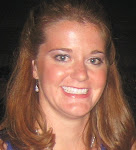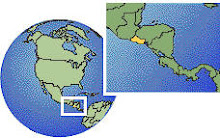
My day began at 2:30 am on Sunday, March 15, 2009, when my alarm went off and to get myself up on my 2 feet, I had to remind myself how much I love the people of El Salvador and how much I want to witness a great change in the conditions of the country. The other observers in my group and I were dropped off in front of the polling center, a school building, where we were assigned, right into the midst of 2 waves of excited and energetic people (though it was still 4:00 in the morning)—one wave of red (the FMLN) and the other of red, white, and blue (ARENA). These 2 waves were composed of all the people who would work at the polling tables that day but were already chanting, an indication of the energy and the importance of the day. I didn’t talk to anyone who slept well the night before (including myself) with all the excitement, expectation, and hope. When the building opened up at 4:30, I entered the building firsts with the rest of the observers, and my first observation task was to watch as those same people who had been standing outside entered the building, one by one, to take their places to work at their polling tables. At my polling center, there were 30 polling tables, and at each of these tables worked 8 people: A President, Secretary, 2 Vocales 1, and 4 Vigilantes. Half of the people working at each table were from each political party. Between 5:00 and 7:00, the workers at each table set up their table—everything from constructing the cardboard ballot box to counting the ballots to verifying and collecting the ID documents of everyone working at the table. The polls opened on time at 7:00am, and for the subsequent 10 hours (OK, so I took some breaks—like breakfast, a doughnut and coffee, lunch, a fruit snack, and a walk to see the atmosphere outside) I would walk in between the 4 tables to which I was assigned to watch for irregularities that were preventing the fair execution of the voting process. There were several disputes about procedures, individual voters or ballots, though fewer than I remember occurring when I was an observer for the legislature and municipality elections in January. I believe I witnessed someone voting using fake identification documents, a friend supposedly took a picture of a bus full of Nicaraguans being brought to the center to vote, and I was always suspicious of those pesty (but ever so helpful to a potential voter search for his/her name in the voting center) ARENAeros directing the people to their correct table. I invite you to take a look at the new album of pictures I took on Sunday during the elections. There are more details about the El Salvador process in the captions. A summary of the activity and energy of the day is that I know that I have a certain dread of election days in the US—because I know it means waiting silently in a long line for hours to arrive at a machine to press some buttons. In the polling centers in El Salvador, the spread is much different. The colors are vibrant, the activity continuous, the variety of people in different roles astounding (table workers, observers, supervisors, votors, children, people bring refreshments to the table workers, police, etc).
The polls closed sharply at 5:00, at which time, the table workers began the process of verifying the votes and the work of the day, and eventually counting the votes. A tedious process because the number of unused ballots had to sum with the number of ballots in the box (and also the number of corners torn off the used ballots) to equal 450 at each table. The president unfolded each ballot, called out the party with its flag marked, showed it to the group, and handed it to the vigilante of the named party. More counting and double-checking. Then, one by one, shouts of the winning parties arose from the tables. Until the very end, I did not know which party won the voting center, because it seemed to me that one party would win a table and cheer, shortly to be followed by the cheers of the other party who had won at another table. Out of the 30 tables in my center, the FMLN candidate Mauricio Funes won 16 and ARENA 14. At some point, at the end of the process of counting and reporting the votes, neutrality went down the drain and when it was announced that the FMLN had won the voting center, had someone taken a picture, you would have seen a great big smile on this observer’s face. 20 years is enough of abandoning the poor majority of El Salvador! The celebrations began among the table workers of the FMLN in the center, but always with suspense about if things would turn out so well in the rest of the centers in the country.
Throughout the rest of the evening, whether it was cheering from the back of our pick-up, watching the election results come in on the TV where we ate pupusas together as the group of election observers, or poking each other to stay away back in the office to watch the succession and acceptance speeches of the 2 candidates, I knew with increasing certainty that a life-changing victory had been won by the FMLN and Mauricio Funes. And indeed, when the final results came out on Monday, the FMLN secured the presidency with 51.27% of the Salvadoran vote.
Sunday represented the first election of a left-wing party candidate to the presidency in El Salvador in the 20 years of post-war time. For the past 20 years of ARENA in power, the conditions of the poor majority (and by that I mean that the majority of people in El Salvador live below the poverty index line with limited opportunities for education, for improving their lives, adequate food and housing, much less health or comfort) have, if anything, worsened. Meanwhile, to sqeeze wealth out the country for the rich, the government has done such atrocities as neglect to tax sweat-shop industries, thereby encouraging their continued abuse of workers, make international agreements that exploit and deny opportunities to the everyday Juan of El Salvador, neglect improving schools and education in favor of encouragning the construction of huge shopping malls. Get the picture?
To help you understand a little more of why this was such an important day in El Salvador, I want to refer to some of the words shared by my co-workers on Monday morning when we had a celebration of the victory of Funes and the FMLN. First, FUNDAHMER (an acronym) is named for a man (Mercedes Ruiz) who during the 1980s worked in the communities destroyed by the 10-year civil war, accompanying the people and working in whatever way possible to improve their conditions, inspire hope for a better El Salvador, and provide relief for those in the most humble positions. I have written in this blog about the martyrs close to the hearts of the people of faith in El Salvador—in fact this Tuesday, March 24, we celebrate the 29th anniversary of the assassination of Monsignor Romero. Thus, Sunday was important because we have hope that it is a step along in the process towards liberation, justice, dignity, and opportunity for all people (including, and most especially, the most poor) that these martyrs would have loved to have seen in their day, but called for the rest of us to continue the struggle toward this better world. By taking to the ballot box, despite threats about their jobs, their families, etc, to vote for a needed change in El Salvador, the people of El Salvador have taken yet another step toward creating their own reality that is more just. Then there are people, like the founders of FUNDAHMER—Armando, Anita, and the generation of older adults in our communities who have worked and waited, enduring terrible conditions that I can’t even imagine over the past 20, 30, 40, 50 years: for them, Sunday is a step in the right direction toward a national environment where their hard, hard, hard work can finally earn them something with which to put an end to the vicious cycle of poverty, hopelessness, and lack of opportunity. I work with and for the youth of the Christian base communities, and so I wasn’t surprised by the amount of youth active in the political process this year—what a great experience for the youth to seen this first exchange of power from a government that has largely abandoned their interests to one that recognizes the crises among the youth and promises to work to resolve and improve them. I share all this hopefulness at the risk of sounding overly optimistic, knowing that only time will tell—-if there is to be improvement, it will come slow. The men and women who will take office with this new government are after all just men and women, but my hope is that they are men and women inspired by the same values that I know inspire my communities: special care for the most vulnerable, equality, opportunity, and dignity.
Again, please check out my photos of the Election day to "observe" for yourself the Salvadoran Election process.



